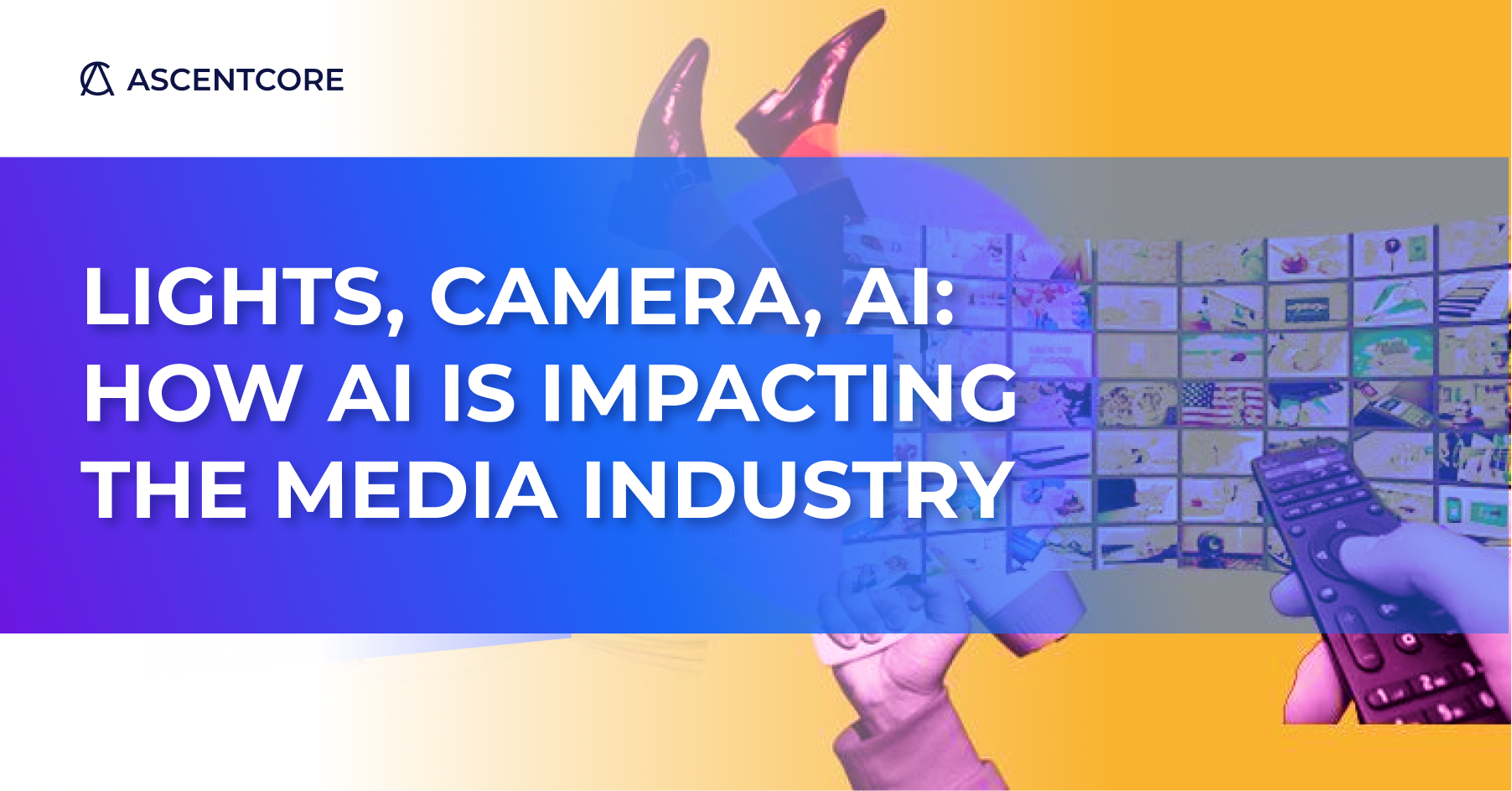There are few industries that the proliferation of AI technology has not impacted. Whether banking, customer service, or education, AI has shaped and influenced how these sectors do business and how customers engage with them. In this post we’ll explore just a few of the ways AI is impacting the media and entertainment industry.
The Impact of AI on the Media Industry
AI has had a significant impact on the media industry, revolutionizing various aspects of content creation, distribution, and consumption. Here are some key ways in which AI has influenced the media industry:
- Content Creation and Curation: AI has the ability to generate and curate content at scale. News organizations and media companies are using AI algorithms to write news articles, sports reports, and financial summaries. AI can analyze vast amounts of data and produce content quickly, reducing the need for human intervention in routine content creation tasks.
- Personalized Recommendations: Media platforms and streaming services leverage AI algorithms to provide personalized content recommendations to users. Many streaming services, such as Netflix, are well known for their ability to recommend content and for viewers to rate content before they even finish it. By analyzing user preferences, behavior, and viewing history, AI can help these services suggest relevant movies, TV shows, articles, and music, enhancing the user experience and increasing engagement.
- Improved Data Analytics: AI enables media companies to gain deeper insights into audience behavior, preferences, and trends. AI-powered analytics tools can process large volumes of data, helping media organizations understand their audiences better and make data-driven decisions regarding content creation, advertising, and marketing strategies.
- Automated Transcription and Translation: It’s critical that media companies make their content accessible to as many people as possible, which means utilizing tools such as subtitles and closed captioning. AI has helped the industry make significant advancements in this area, including natural language processing and speech recognition. Media companies utilize AI-powered tools to transcribe audio and video content automatically, simplifying the process of creating closed captions, translating content into different languages, and improving accessibility for viewers.
- Enhanced Editing and Post-Production: AI technologies like computer vision can analyze and process visual content. Media professionals can use AI-powered tools to automate video editing tasks, enhance image quality, remove background noise, and streamline post-production workflows, ultimately saving time and resources. This technology also allows media professionals to spend their time on critical work rather than more mundane and time-consuming tasks.
- Better Detection of Misleading Information: The proliferation of misinformation and “fake news” in recent years has been a complex and hot-button topic on most media professionals’ minds. AI can play a vital role in combating false information by analyzing content, detecting patterns, and identifying potential instances of misinformation, helping journalists and fact-checkers verify sources and improve the accuracy of reporting. However, the flip side is that AI can also be used unethically to create and spread misinformation which can have very real consequences on national and global events.
- Virtual Assistants and Chatbots: Media organizations are leveraging AI chatbots and virtual assistants to enhance customer service and engagement. These AI-powered tools can provide instant responses to customer queries, offer recommendations, and deliver personalized news updates, creating interactive and immersive user experiences while freeing up staff to focus on more creative and critical pursuits.
- Automated Ad Placement: AI algorithms can optimize the placement of advertisements online, through streaming services, and on our phones and televisions by analyzing user data and content context. Using this data allows media companies to better target specific audiences and deliver personalized ads, leading to higher ad engagement and better monetization opportunities.
The Benefits are Clear, but There are Some Risks
While AI brings numerous benefits to the media industry, it also raises concerns around the ethics of automation, potential biases in content generation, and the impact on human jobs. Striking the right balance between AI-driven automation and human creativity will remain a key challenge for media companies to keep top of mind.
If you’re looking for guidance on how your business can successfully implement and leverage AI technology, check out our use case for the media industry. We’re dedicated to delivering exceptional solutions to our clients, so reach out today and let us know how we can help.



